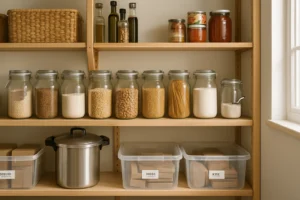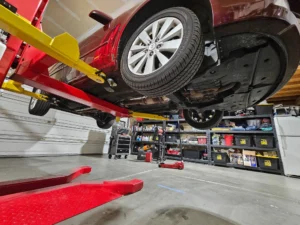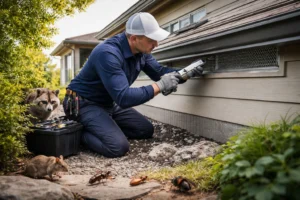I’ll admit it I’ve pulled an egg out of the fridge and stared at it like it was some sort of mystery orb, wondering if it was still safe to eat. The carton dates don’t always tell the full story, and I hate wasting food if I don’t have to. That’s when I learned about the egg sink or float test. It sounded almost too easy at first: just put an egg in water and see what happens. But over time, this test has become my go-to kitchen hack for knowing exactly how fresh my eggs really are.
Let me walk you through everything I’ve learned step by step so you’ll never second-guess your eggs again.

Egg Float Test
The egg float test is one of those old-fashioned kitchen tricks that actually works. My grandmother swore by it, and after trying it myself, I can see why. It’s quick, it’s accurate, and it doesn’t require any fancy gadgets.
The concept is simple: fresh eggs sink, older eggs start to tilt, and bad eggs float. You don’t need to be a scientist to see the difference, but the science behind it is actually kind of fascinating (and we’ll get to that in a bit).
Float Test Eggs: Step by Step
Here’s how I do the float test on eggs whenever I’m unsure about the carton in my fridge:
- I fill a medium-sized bowl with cold water.
- I gently place the egg in the bowl (don’t just drop it—you’ll regret that).
- Then I watch what the egg does:
- Fresh eggs: sink right to the bottom and lay flat.
- Slightly older eggs: sink but stand upright or tilt a little.
- Bad eggs: float to the top.
That’s it. No cracking, no sniffing (at least not yet), and no wasted eggs if they’re still good.
Egg Water Test: Why It Works
The egg water test might feel like magic the first time you try it, but it’s really just basic science. Eggshells are porous, meaning air can slowly sneak inside as the egg ages. The longer the egg sits, the bigger that internal air pocket becomes.
Here’s the breakdown:
- Fresh eggs are dense → they sink.
- Older eggs have more air → they start tilting.
- Bad eggs have too much air → they float.
It’s that simple.
Egg Freshness Check
While the float test is my favorite, it’s not the only way to do an egg freshness check. Sometimes I’ll use one of these other methods:
- Sniff test: Once cracked, a bad egg has a sulfur smell that’s impossible to miss.
- Visual check: A fresh egg has a firm yolk and tight egg whites. Bad ones look watery or discolored.
- Shake test: Hold an egg near your ear and shake it. If it sloshes, it’s getting old.
- Candling: Shine a bright light through the shell to see the air cell. Farmers use this all the time.
But honestly? The float test is the easiest and least messy way to check at home.
Do Eggs Float When Bad?
One of the most common questions I see is: do eggs float when bad? The answer is usually, yes.
If your egg floats, it’s almost always past the point of being safe. The large air cell means the egg is very old, and even if it doesn’t smell terrible yet, I wouldn’t risk eating it.
That said, not every floating egg is toxic—it just means it’s too far gone to be worth keeping. Food safety experts generally recommend tossing it.
How to Tell If an Egg Is Bad
Sometimes I don’t feel like pulling out a bowl of water, so here’s how to tell if an egg is bad without the float test:
- Check the shell: Slimy, chalky, or cracked shells are warning signs.
- Check the date: Eggs are usually fine 3–5 weeks past the pack date if refrigerated, but after that, it’s risky.
- Crack it open: If it smells sulfur-like, or if the yolk looks flat and the whites are watery, it’s no good.
Between the float test and a quick sniff check, I’ve never accidentally eaten a rotten egg.
What Does It Mean If an Egg Floats?
So let’s say you try the float test and your egg rises to the top. What does it mean if an egg floats?
It means the egg is old—plain and simple. The air pocket inside has expanded so much that the egg is less dense than water. In most cases, that egg is spoiled.
Even if it doesn’t reek when you crack it, chances are it won’t taste right, and it’s not worth the risk. I’ve made it a rule in my kitchen: if it floats, it goes in the trash.
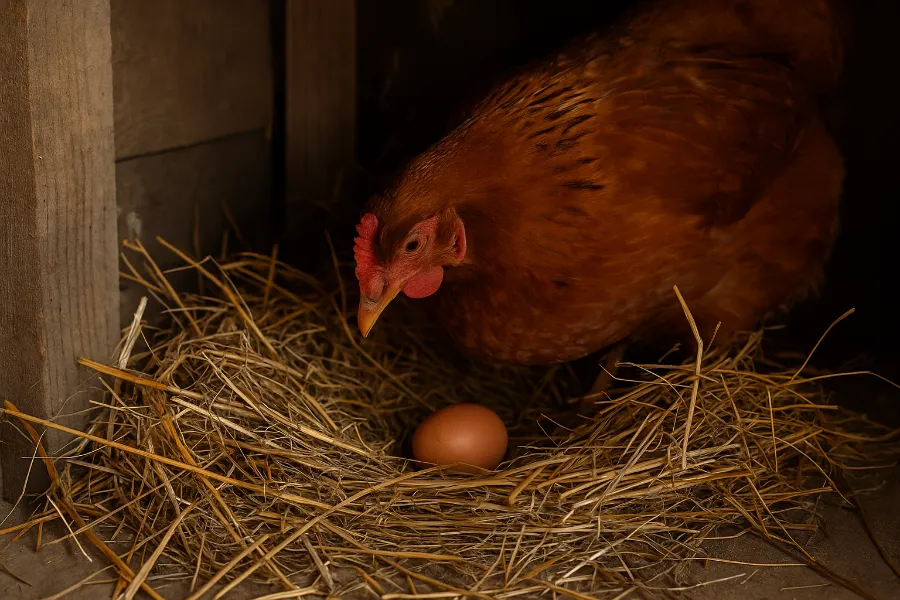
Egg Freshness Test in Water
When I do an egg freshness test in water, I usually get one of three outcomes:
- Fresh egg (1–7 days): Sinks and lays flat. Perfect for poaching, frying, or baking.
- Older egg (2–3 weeks): Sinks but tilts upright. Still safe and often easier to peel when hard-boiled.
- Spoiled egg (4+ weeks): Floats. Not worth keeping.
This test has never let me down, and it’s saved me from wasting plenty of good eggs that were still edible.
Extra Tips for Keeping Eggs Fresh
Now that you know how to test them, let’s talk storage:
- Always keep eggs in their original carton. It prevents moisture loss and protects from fridge odors.
- Don’t store eggs in the fridge door—the temperature swings shorten shelf life.
- Farm-fresh eggs with the bloom intact can last at room temp for about two weeks. Once washed, refrigerate them immediately.
- Rotate your stock. I write the date on my cartons and use the oldest eggs first.
Myth Busting: Egg Float Test Edition
I’ve also heard some wild myths about the float test, so let’s set the record straight:
- “All floating eggs are rotten.” Not always—they’re just very old, but usually unsafe to eat.
- “Sinking eggs are always safe.” True most of the time, but if it smells off after cracking, don’t risk it.
- “The float test tells you exact age.” Nope—it’s a general guide, not a stopwatch.
Using Older but Safe Eggs
Not every older egg has to go to waste. If it passes the float test but isn’t super fresh, I’ll often use it for:
- Hard boiling: They peel so much easier than very fresh eggs.
- Baking: Older whites whip up higher for meringues.
- Scrambling or casseroles: Perfect for dishes where the texture matters less.
It’s all about knowing where an egg fits best in your cooking timeline.
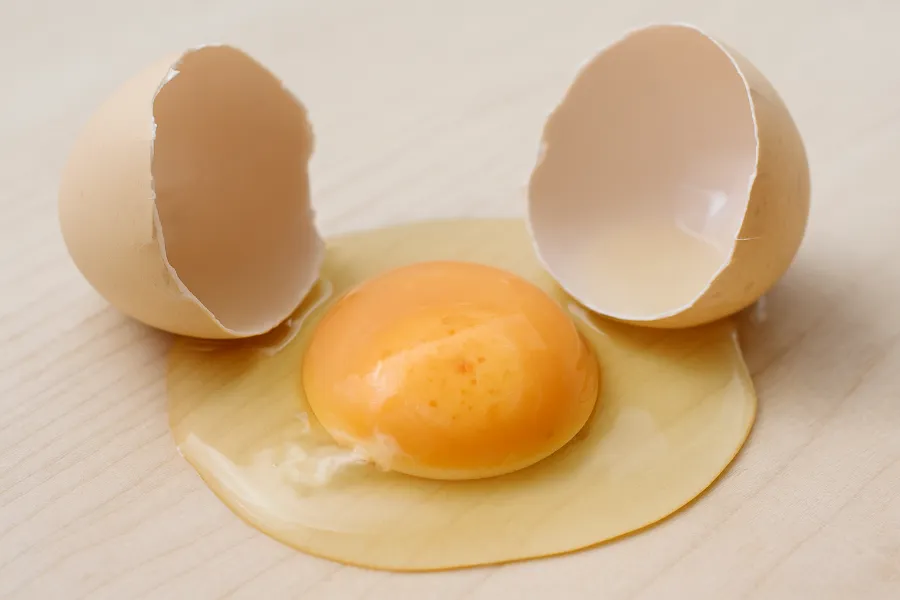
Final Thoughts
The egg sink or float test is one of those simple life hacks that makes me feel a little more in control in the kitchen. Instead of relying only on dates or second-guessing myself, I can check my eggs in less than a minute.
It’s easy, it’s accurate, and it’s saved me from wasting food—and from cracking a rotten egg into a cake batter (which, trust me, you never want to experience).
So the next time you’re staring at a questionable egg, fill a bowl with water and give it the float test. Your nose, your stomach, and your recipes will thank you.
FAQs
It’s a simple method where you place an egg in water to check freshness. Fresh eggs sink, while bad eggs float.
Yes, floating usually means an egg is old or spoiled. It’s best to discard floating eggs to stay safe.
Check the shell for cracks or sliminess and smell the egg once cracked. A rotten egg has a strong sulfur odor.
If an egg floats, the air cell inside has expanded too much, showing it’s no longer fresh. Most floating eggs are unsafe.
The egg water test is very reliable, but not perfect. Always double-check with smell or appearance after cracking.
Refrigerated eggs usually stay fresh for 4–5 weeks past the pack date. Hard-boiled eggs last about 7 days.
Yes, older eggs that sink but stand upright are still safe. They’re often better for hard-boiling and baking.



